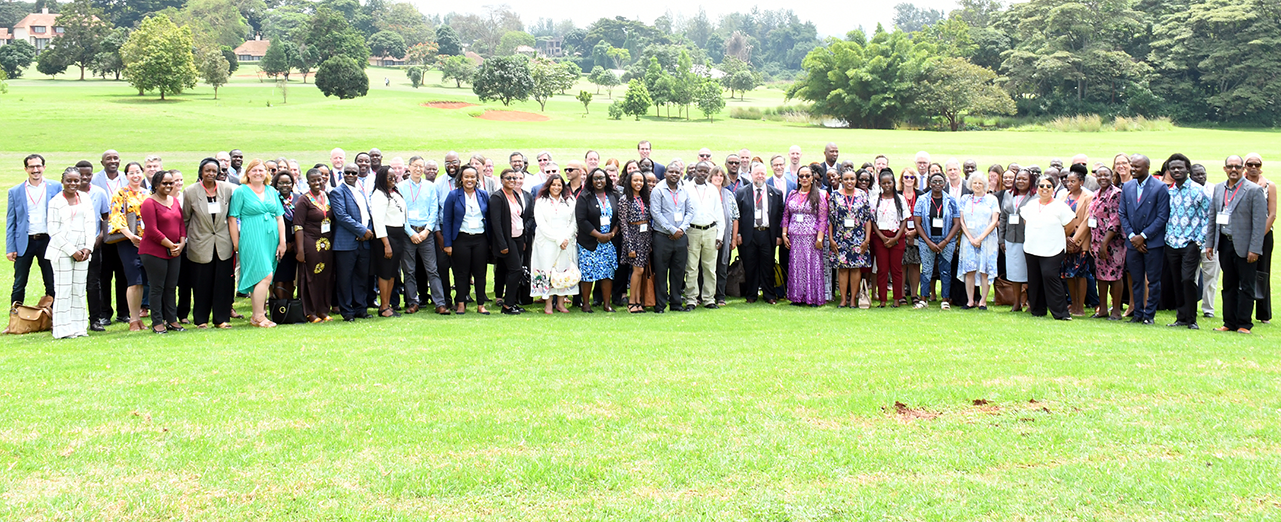
Collective climate action for the global community
Feed the Future Innovation Lab for Horticulture convenes meeting on behalf of USAID
In Nairobi, Kenya this past May 15 — 19, the Feed the Future Innovation Lab for Horticulture hosted the 2023 Feed the Future Innovation Labs Regional Partners Meeting, bringing to the fore, the global conversation on climate change and agricultural international development as well as lessons learned from the Horn of Africa's most devastating drought. The meeting provided a platform for regional experts actively combatting the devastating effects of climate change in their regions to share their experiences, and for all involved in the international community to directly engage with key stakeholders in support of innovative research and development solutions being implemented by partners in East Africa.
The purpose of the conference was for attendees to understand geographic differences, priorities, and trade-offs of climate change mitigation and adaptation strategies; highlight systems and scaling challenges and transformative solutions; and advance opportunities for local-led leadership and international collaboration. As Chair of the Feed the Future Innovation Lab Council of Directors, Erin McGuire, and USAID curated the agenda. Presentations ranged from a diverse panel of speakers with incredible breadth — emphasizing the importance and urgency of bringing together regional experts to field and lab site-visits that provided crucial insight into current and emerging threats to food security within the region, and the innovative research solutions being developed to resolve them.
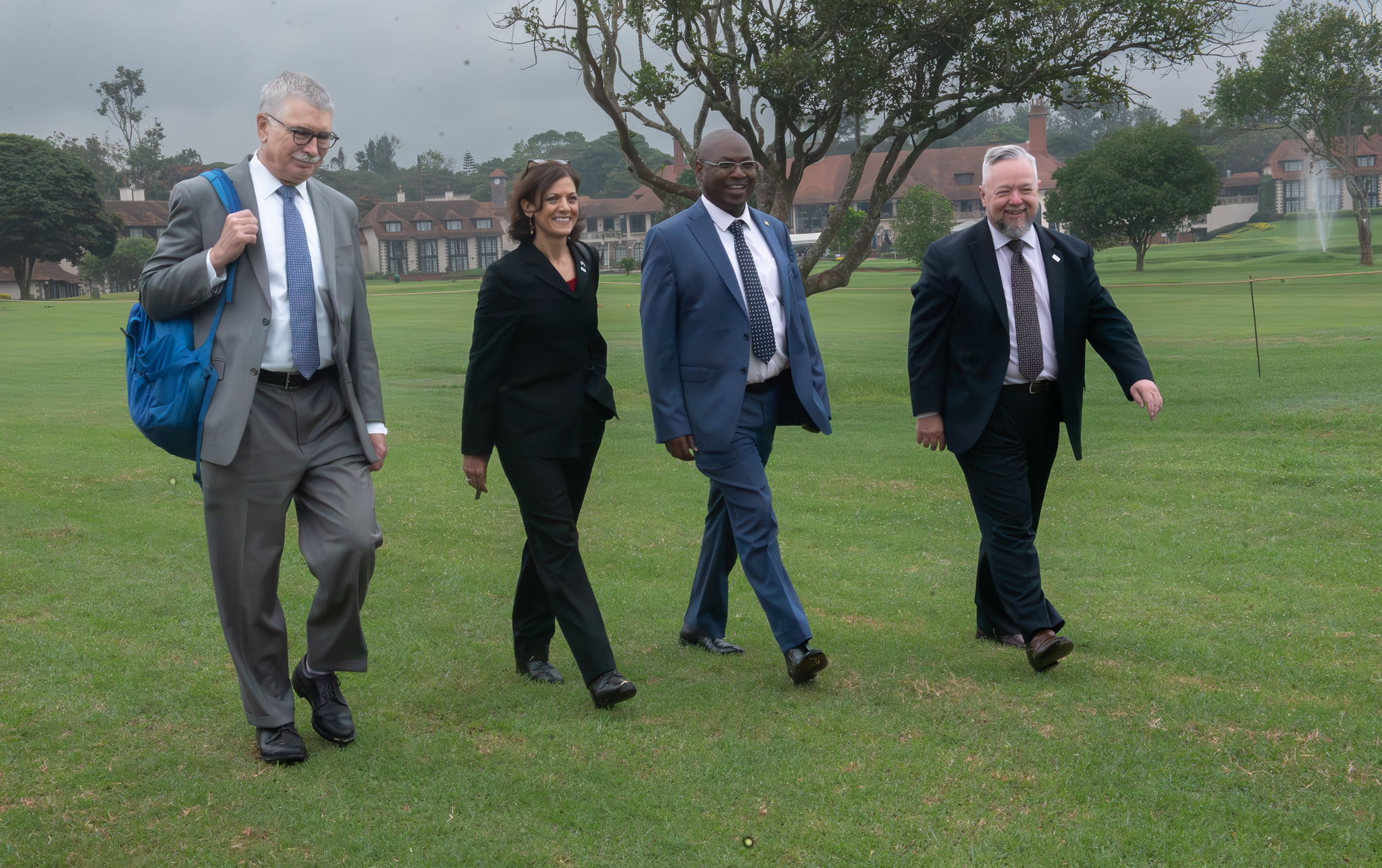
Day one began, with leaders from all over the world ready to engage, including representatives from 18 of the 20 U.S.-based Innovation Labs, government officials from Washington, D.C. and Kenya, and guest dignitary speakers such as Mike Michener, Harry Kimtai and Sheila Roquitte, with moderators such as Rob Bertram and Jerry Glover. USAID and Kenyan dignitaries visited every Innovation Labs’ exposition booth, giving each Innovation Lab the opportunity to share and discuss critical issues and specialized areas of research focus. The visitors then took to the stage to address climate change challenges and solutions, and speak on the benefits of collaborative partnerships.
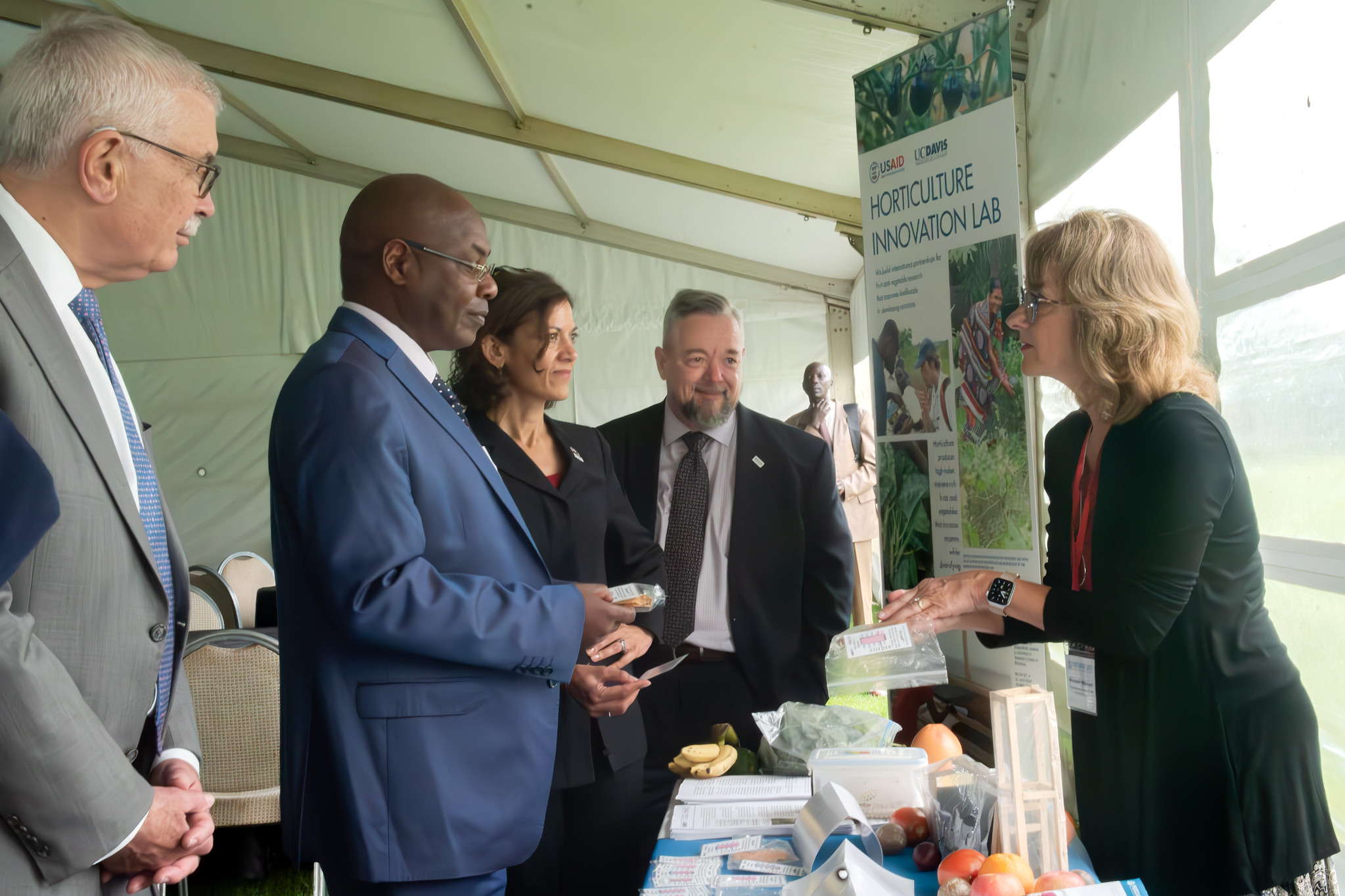
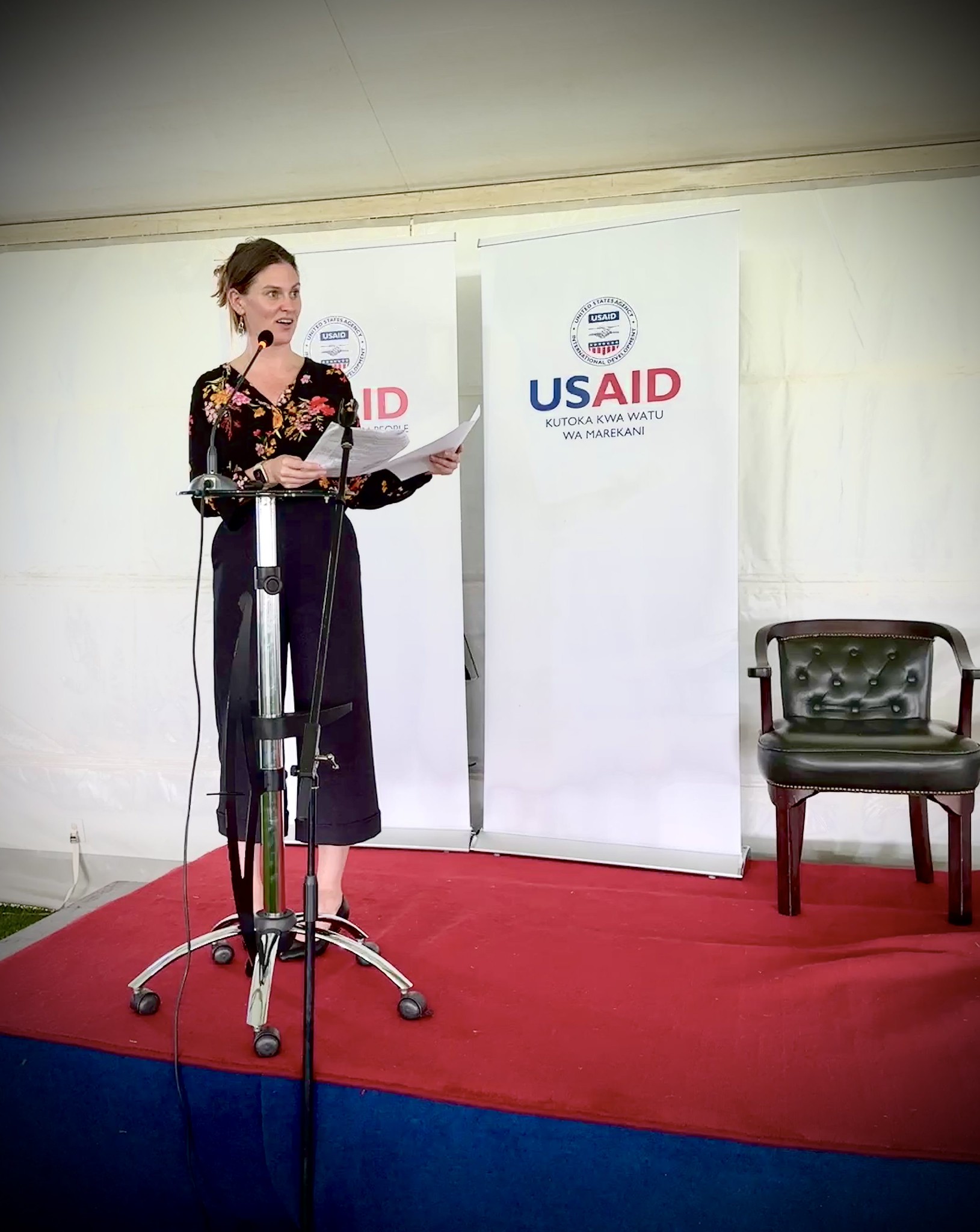
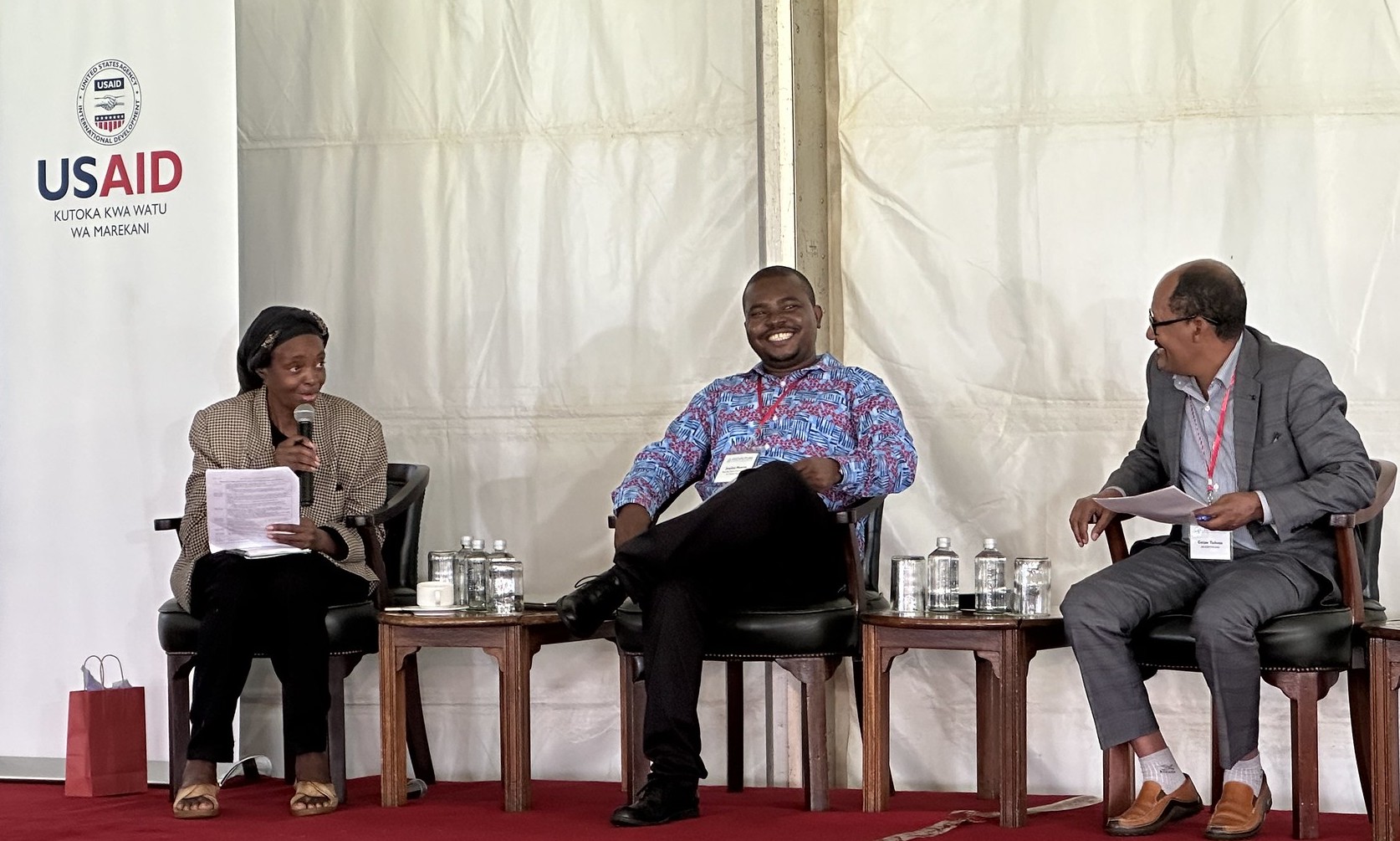
Day three was a working day focused on local-led research, with group discussion and brainstorming to determine a collective vision for local leadership going forward, and plans for how to make it a reality. While the group acknowledged significant barriers — including administrative, logistical, and institutional — the desire from both the Innovation Labs’ management entities and local partner side to turn development over to local experts was evident.
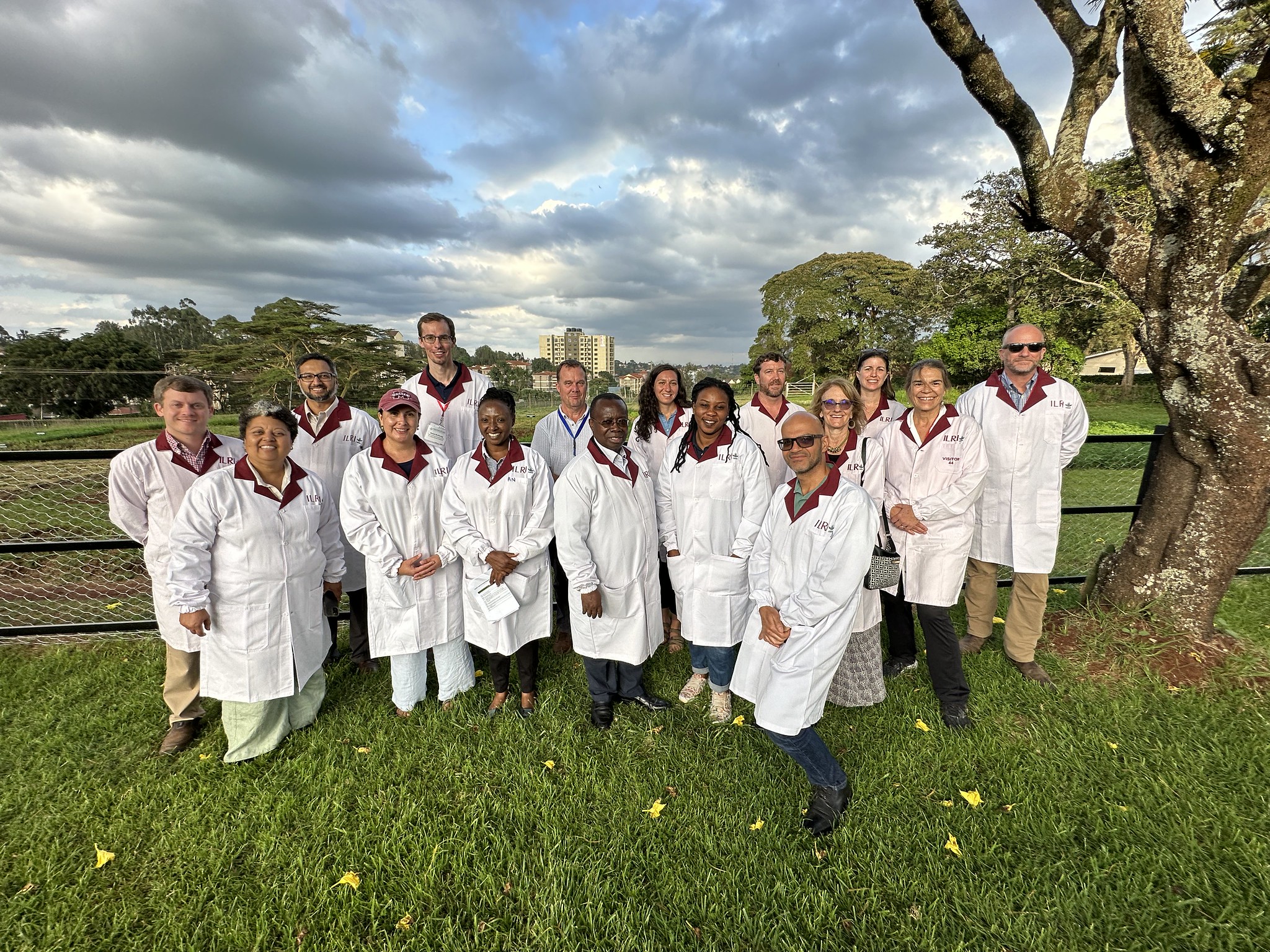
During the fourth day, Innovation Labs and their partners took to the field to witness some of East Africa’s most vital agricultural research. International Livestock Research Institute’s (ILRI) Kapiti Research Station and Wildlife Conservation provided examples of climate adaptation in action; drought and heat-tolerant cattle breeds developed by researchers and the study of desert-adapted livestock such as camels. At the Kenya Agricultural and Livestock Research Organization’s (KALRO) dryland crops research site, the group learned about how researchers are improving seed varieties in order to mitigate low agricultural productivity that plagues many farmers in the region. At ILRI Nairobi, Kenya campus, visitors learned about the applied research taking place to address a range of critical agricultural challenges and in particular, how to improve livestock systems.
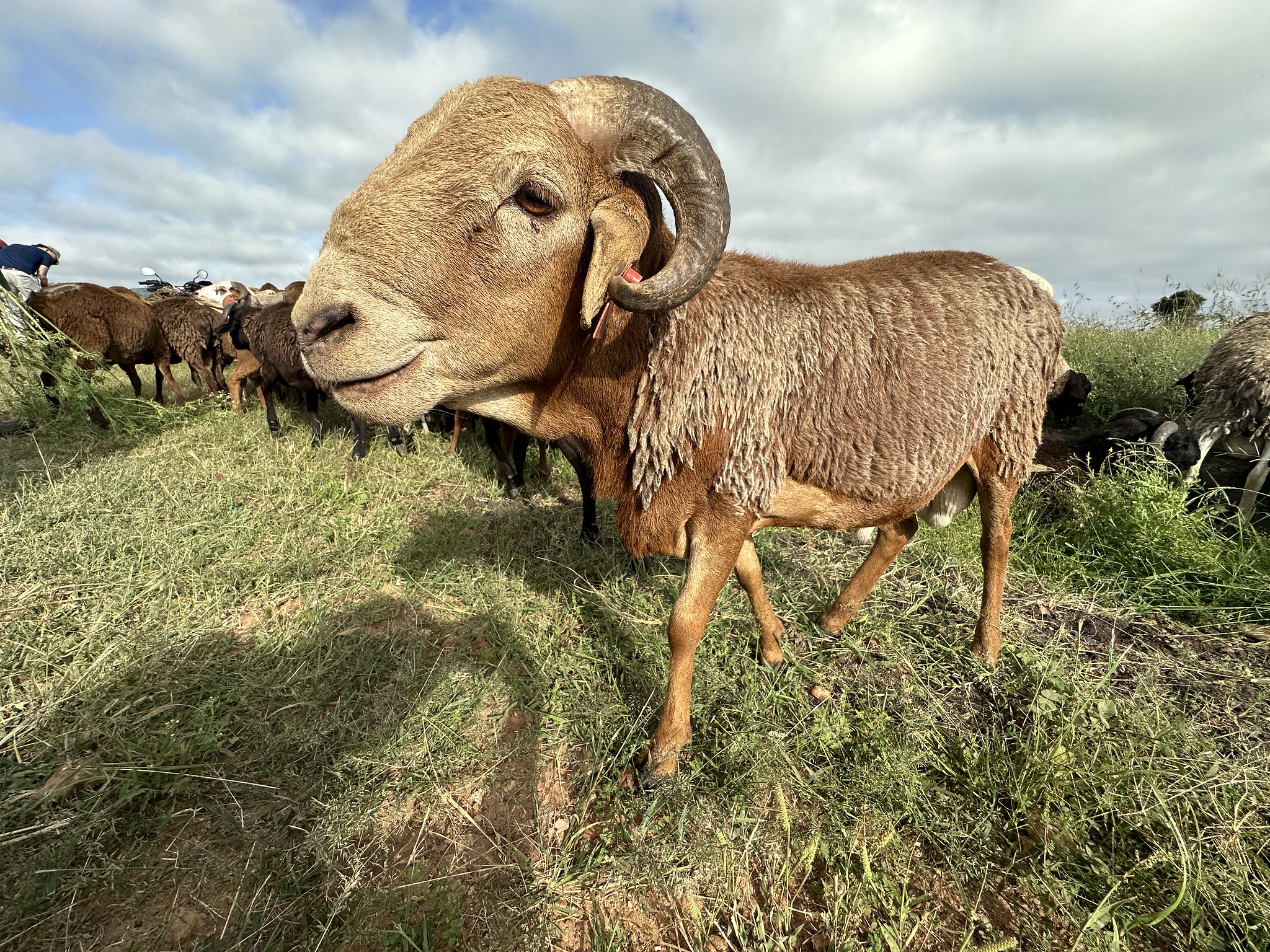
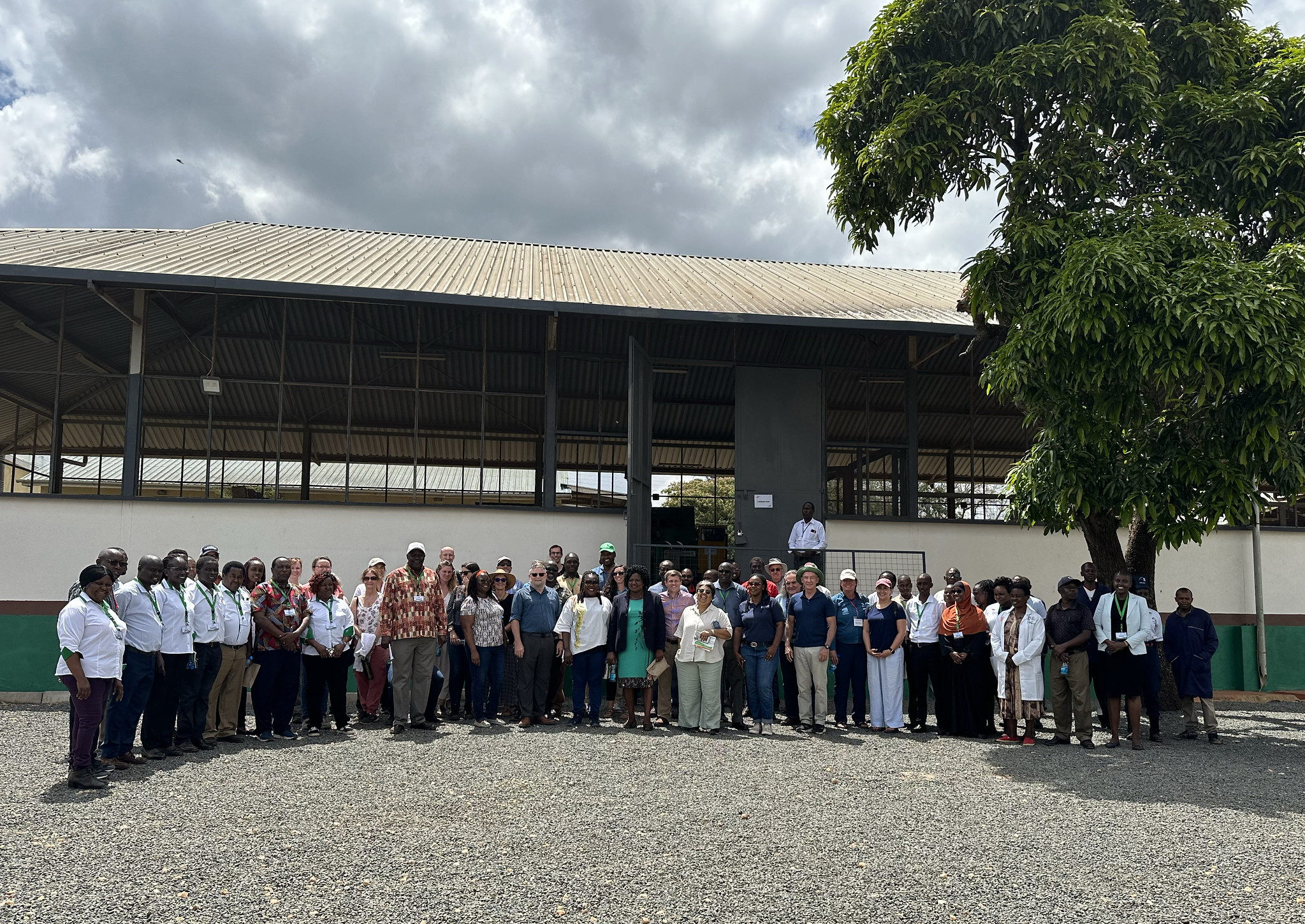
Day four included stops at International Livestock Research Institute’s (ILRI) Kapiti Research Station and Wildlife Conservation, Kenya Agricultural and Livestock Research Organization’s (KALRO) dryland crops research site, and ILRI Nairobi, Kenya campus.
On the fifth and last day, the group traveled to Muranga County, to visit Michigan State University’s Scientific Animations Without Borders’ (SAWBO) community demonstration plot. They learned about the impact of digital videos being used to promote good agricultural practices (GAP) have on farmers, where several lead farmers have taken this information and implemented it in their own fields. The final stop was a tour of the horticulture nursery and banana tissue culture lab at Jomo Kenyatta University of Agriculture and Technology (JKUAT), where student and faculty researchers shared sustainable farm-to-kitchen and -market production methods, from utilizing the pellets of meat-farm rabbits for fertilizer, greenhouse irrigation systems, color-lighting lab studies of sprouts, to raising nursery mushrooms at a capacity to scale and create a new market. The holistic approach to student-led campus farming led by JKUAT reflected a recurring theme voiced by many throughout the week, that “if you want to go fast, go alone, but if you want to go far, go together.”
The 2023 Feed the Future Innovation Labs Regional Partners Meeting in Nairobi, Kenya exemplified the power of collaborative research and international cooperation in tackling climate change and agricultural development challenges. Together, through shared knowledge and inclusive partnerships, we can build a sustainable future for the global community
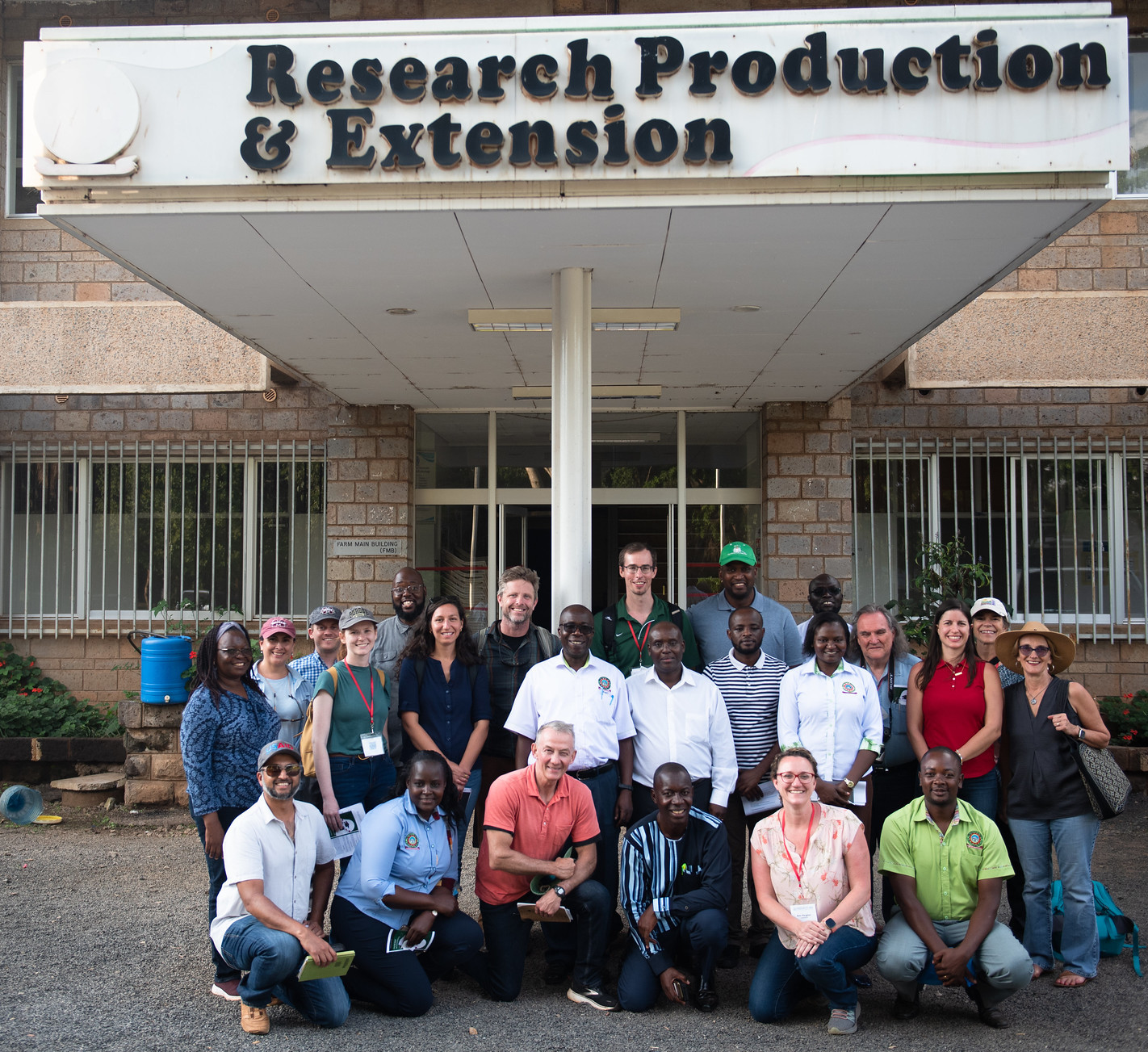
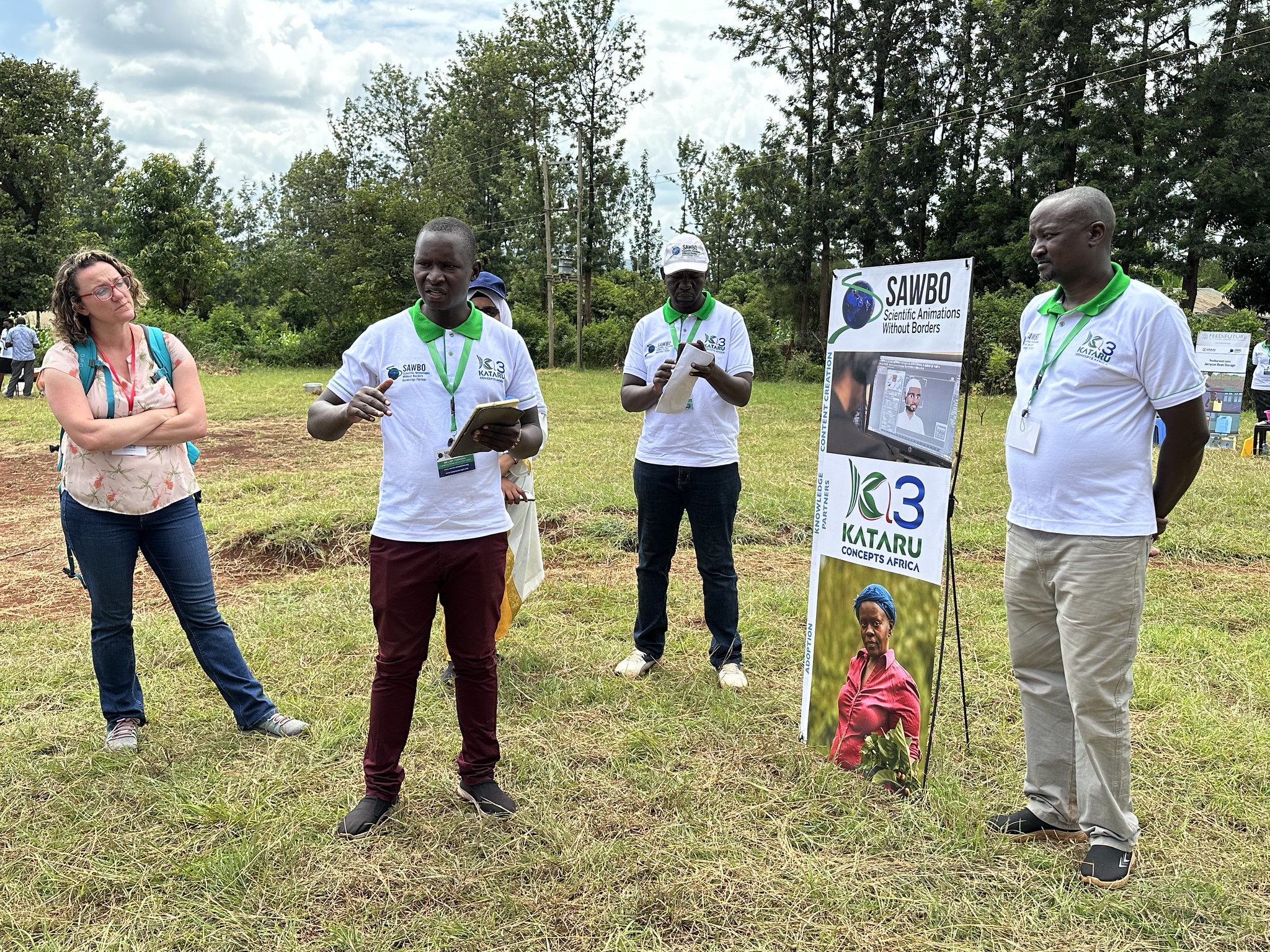
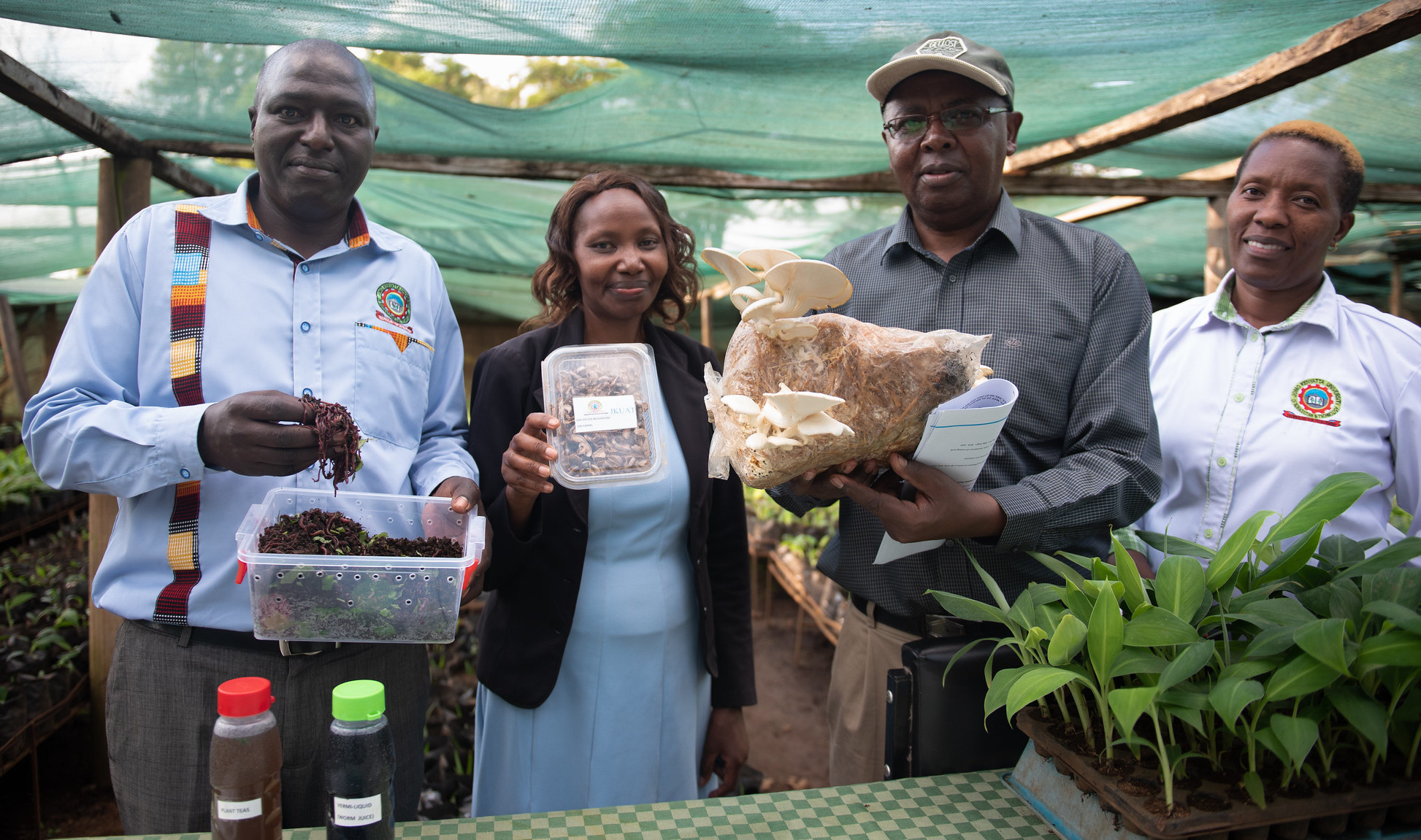
Additional resources and documentation
For those unable to attend, we have made available the following:
- Flickr photo album
- Short-video of conference highlights
- recorded zoom sessions and PowerPoints shared by the presenters may be found on the conference webpage.
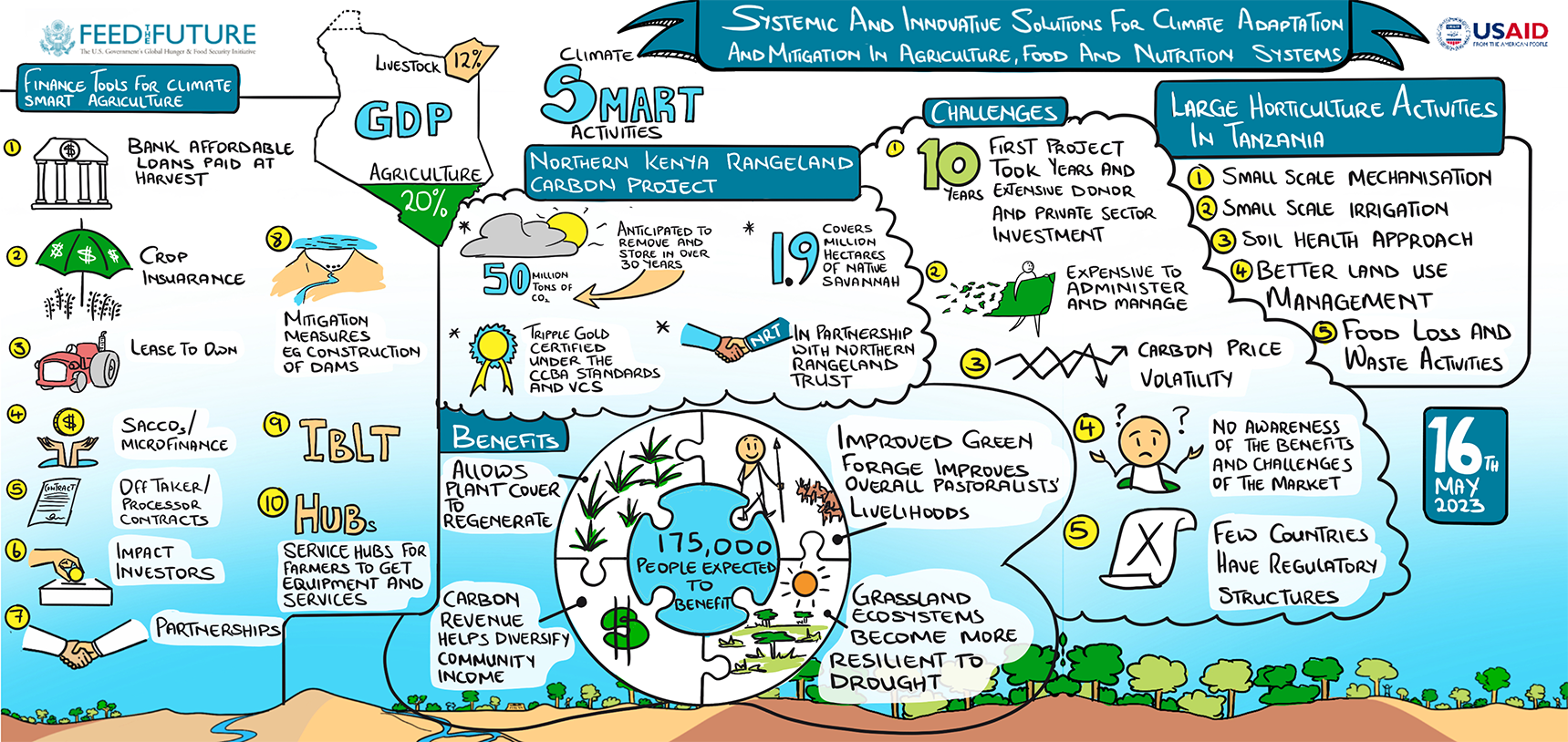
Recordings available
Click image to view conference page hosting all recordings, including zoom, short-video, PPTs and graphic illustrations.
